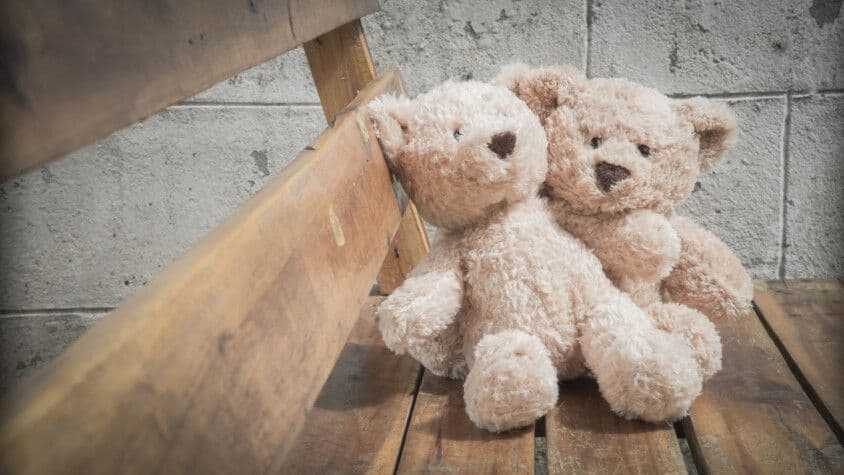Policy
Quality
Research
New report spotlights what it means for children to feel ‘valued, loved and safe’ in Australia

0bdx41vt25zs
May 21, 2025
Save
A new report from UNICEF Australia and the Australian Research Alliance for Children and Youth (ARACY) offers a timely and comprehensive look at how safe, supported and connected children in Australia truly feel. It also explores where urgent action is still needed.
Building a Secure Future draws on findings from the Australian Children’s Wellbeing Index, a national framework for tracking child wellbeing across six interconnected domains. This report focuses on the “Valued, loved and safe” domain, examining how feeling secure in relationships, family, community and online environments impacts children’s development and life outcomes.For those working in early childhood education and care (ECEC), the report is a powerful reminder of the foundational role that safe, trusting relationships and inclusive environments play in the early years.
Most children feel safe, but far too many don’t
While many children and young people say they feel safe and supported, structural disadvantage, intergenerational trauma and family violence continue to place large numbers of children at risk.
Key findings include:
- 62 per cent of young Australians (aged 16 to 24) report having experienced at least one form of child maltreatment
- Aboriginal and Torres Strait Islander children are 10 times more likely to be placed in out-of-home care or youth justice supervision than non-Indigenous children
- Children from the lowest socio-economic areas are 7 times more likely to be under supervision than peers in wealthier communities
- Bullying and online harms remain high, with Australia ranking among the worst in the OECD for bullying rates among 15-year-olds
Yet, the report also highlights resilience. Most children in out-of-home care, for example, say they feel safe and connected in their placements. And young people report turning to friends and parents for support in times of stress. This is a reminder of the protective power of relationships.
“We know that early safety and security lay the foundation for lifelong wellbeing,” said Dr Kristy Noble, lead author of the report. “The systems children rely on must respond earlier, listen better and act in ways that are centred on their rights.”
Early years and protective factors matter
In the antenatal to preschool years, early intervention appears to be having a positive impact. Child protection notifications for young children have decreased, and initiatives like Australia’s Early Years Strategy and expanded paid parental leave are steps in the right direction.
However, infants still have the highest rates of entry into out-of-home care. Australia also lags behind other OECD countries when it comes to the duration of paid parental leave.
Online safety and climate anxiety among emerging risks
The report identifies digital safety as a growing concern. Young people report exposure to hate speech and harmful content online, while more than 45 per cent say they are concerned about the impact of artificial intelligence.
Similarly, climate change is a growing source of stress, with increasing concern among adolescents linked to poorer mental health and a more negative outlook on the future.
Early intervention makes a difference
The authors stress that child maltreatment is not an isolated problem. It is strongly linked with youth justice involvement, mental health issues and long-term negative life outcomes, particularly when multiple types of maltreatment are experienced.
Yet the presence of risk does not guarantee a negative path. The report calls for greater investment in early, evidence-based and culturally safe supports, and a stronger focus on amplifying children’s voices in policies and services.
Among its top recommendations, the report calls for:
- Legislating the UN Convention on the Rights of the Child in Australia
- Appointing a Cabinet Minister for Children
- Increasing funding for Aboriginal-led services and prevention programs
- Embedding children’s voices in how systems measure outcomes
Why this matters for early childhood education and care
ECEC professionals are often on the frontline of children’s wellbeing. The report reinforces the vital role early learning environments play in creating a sense of security, belonging and connection, especially for children experiencing disadvantage or trauma.Research consistently shows that high-quality early learning can serve as a protective buffer for children. It fosters secure attachments, emotional regulation and a stronger sense of identity.
From nurturing relationships to trauma-informed practice and inclusive community engagement, the priorities set out in this report are deeply aligned with what the ECEC sector already strives to achieve every day.
As ARACY and UNICEF Australia put it: “Being valued, loved and safe is not just a feeling. It is a foundation for every child’s wellbeing and future.”
Educators, policymakers and service providers can all play a role in building secure futures by embedding safety, belonging and children’s voices at the centre of their practice.
The full report is available here or on the ARACY website.
Don’t miss a thing
Related Articles



















